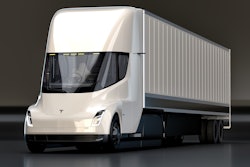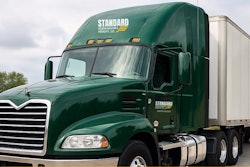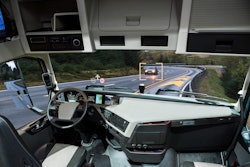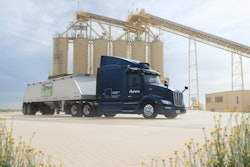The Volvo Group has introduced what it describes as an efficient hybrid solution for heavy vehicles, including trucks and buses, offering fuel savings of up to 35 percent.
“We envisage opportunities to accelerate developments in commercially viable hybrids for heavy vehicles,” says Leif Johansson, president and chief executive officer of Volvo. “This can be significant for both our customers and for the environment.”
The Volvo Group’s hybrid concept provides maximum fuel-saving effects on routes with frequent braking and accelerations, including city bus traffic, city distribution, refuse collection and construction work. According to Volvo, calculations indicate that fuel savings can amount to 35 percent, and maintenance costs for vehicles also can be reduced through reduced wear on the braking system.
“There is a growing interest in the market to reduce fuel consumption,” Johansson says. “This is driven by the uncertainty surrounding the physical and political availability of oil, and perhaps primarily by climate change issues. Accordingly, many customers are seriously reviewing how they can contribute to reduce the dependency on oil. We now have a technology that is interesting from a commercial viewpoint, which opens for a hybrid market for heavy vehicles.”
A vital part of the hybrid solution, designated I-SAM, comprises a combined start motor, drive engine and generator. I-SAM works together with an automatic, converted mechanical transmission that was developed within the Volvo Group; an electronic control unit; a conventional diesel engine; and batteries that are charged by braking energy.
Through linking the electric motor and diesel engine in parallel, they can work together to operate the vehicle, according to Volvo, and the capacity of the hybrid is increased substantially compared with series hybrids, which are the standard solution currently being tested in heavy vehicles. I-SAM provides sufficient power resources to start and accelerate even heavy vehicles to an appropriate speed without assistance from the diesel engine, and this also reduces the noise level of the vehicle significantly, according to the company.
The Volvo Group also is participating in the development of a new type of battery, Effpower, which is based on lead-acid technology used in start batteries in today’s vehicles. Through this new technology, the power output has been doubled, Volvo says, while at the same time manufacturing costs for the batteries can be reduced compared with alternatives on the market. With Effpower, the cost efficiency in electrical hybrids can be enhanced further, Volvo says.
“The hybrid is a long-term and highly interesting solution for efficient and environmentally-adapted transport activities,” Johansson says. “We are aware that oil prices for our customers will rise, and therefore, all solutions that reduce fuel consumption are highly attractive. The diesel engine in our hybrid solution can also be operated using biofuels, and consequently, transport activities can be conducted without carbon dioxide emissions. This paves the way for interesting developments toward long-term sustainable transport solutions.”









